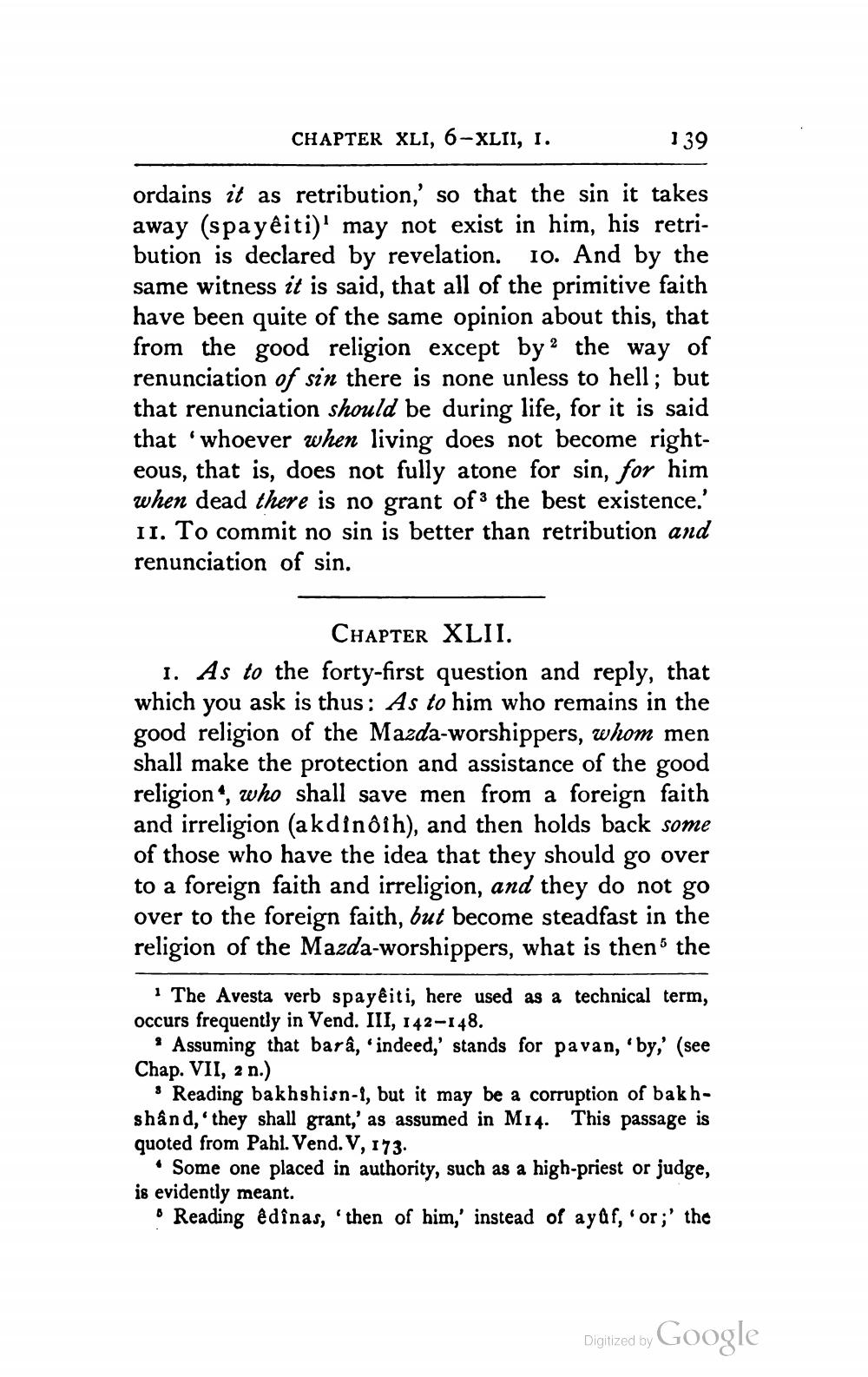________________
CHAPTER XLI, 6-XLII, 1.
139
ordains it as retribution, so that the sin it takes away (spa yêiti)' may not exist in him, his retribution is declared by revelation. 10. And by the same witness it is said, that all of the primitive faith have been quite of the same opinion about this, that from the good religion except by the way of renunciation of sin there is none unless to hell; but that renunciation should be during life, for it is said that 'whoever when living does not become righteous, that is, does not fully atone for sin, for him when dead there is no grant of the best existence.' II. To commit no sin is better than retribution and renunciation of sin.
CHAPTER XLII. 1. As to the forty-first question and reply, that which you ask is thus: As to him who remains in the good religion of the Mazda-worshippers, whom men shall make the protection and assistance of the good religion“, who shall save men from a foreign faith and irreligion (akdinộih), and then holds back some of those who have the idea that they should go over to a foreign faith and irreligion, and they do not go over to the foreign faith, but become steadfast in the religion of the Mazda-worshippers, what is then the
The Avesta verb spayêiti, here used as a technical term, occurs frequently in Vend. III, 142-148.
Assuming that bara, .indeed,' stands for pavan, 'by,' (see Chap. VII, 2 n.)
Reading bakhshisn-l, but it may be a corruption of bakhshånd, they shall grant,' as assumed in M14. This passage is quoted from Pahl. Vend. V, 173.
• Some one placed in authority, such as a high-priest or judge, is evidently meant.
• Reading edinas, 'then of him,' instead of ayaf, 'or;' the
Digitized by Google




